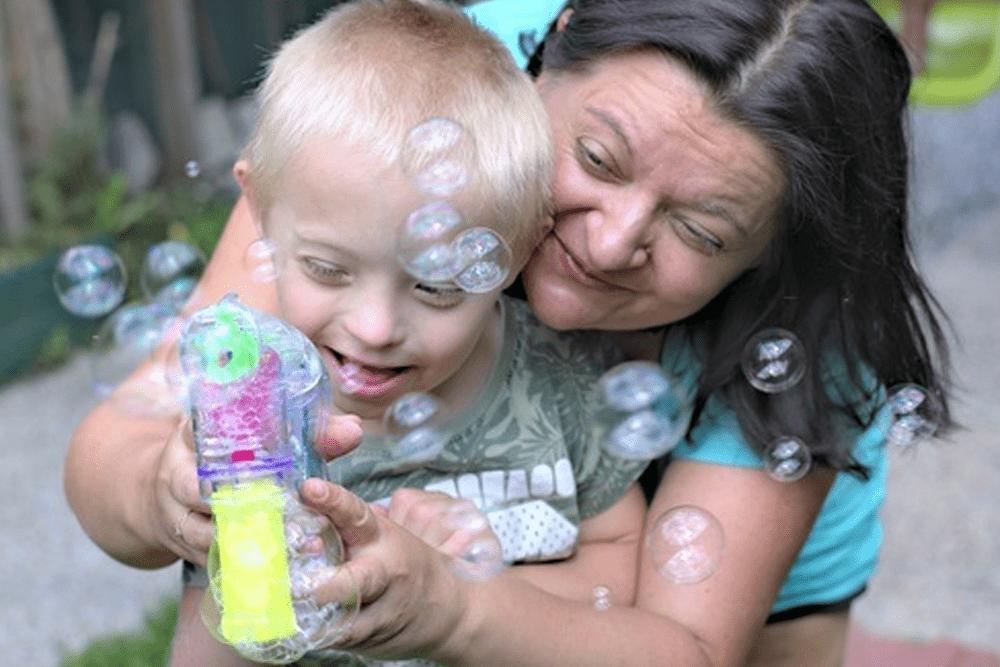Some parents feel upset, overwhelmed and worried about how they’ll cope. For others, it’s a relief to finally know what’s going on. Everyone’s experience is different. However you’re feeling, you’ve probably got lots of questions about all kinds of things. It’s a whole new world to get used to with its own language, systems and services. It can be full of uncertainty too. But we’re here to help you make a start. The information on this page can help you get to grips with some of the basics and point you in the right direction for where to go next.
DIAS runs training sessions called Making Sense of SEND, which are aimed at parent carers who want to know more about SEND and how SEN support works in nursery, school and college. Details of current training sessions and how to book are on our events page.

SEN is short for Special Educational Needs. It’s a term you’ll probably hear a lot from now on.
A child has special educational needs if both of these things are true for them:
1. They have a learning difficulty or disability.
This means:
2. Their learning difficulty or disability means they need educational or training support that is additional to, or different from, that made generally for other children or young people of the same age.
 So, in other words, if your child or young person has both a learning difficulty or disability and they need extra or different support from others of their age, then they have a special educational need.
So, in other words, if your child or young person has both a learning difficulty or disability and they need extra or different support from others of their age, then they have a special educational need.
Special educational needs affect different children in different ways. For example, your child may find it hard to:
SEN is a broad area with lots of different kinds of need. Some children may have SEN in a specific area or just need some support to make progress. Whereas other children may have a range of needs or need a lot of support. Sometimes these are called complex needs.
Some children or young people may need extra support which isn’t special educational support, for example, if they need medicines given at school to manage a health condition.
You’ll also see the term SEND. This stands for Special Educational Needs and Disability.
All children and young people with SEN are entitled to extra support with learning at nursery, school or college.
The Equality Act 2010 says that someone has a disability if they have:
‘A physical or mental impairment, which has a long-term and substantial adverse effect on their ability to carry out normal day-to-day activities’.
Long-term means it’s lasted a year or more. Substantial means it’s not minor or trivial. For example, it takes much longer than it usually would to complete a task like getting dressed.
Disabilities include:
Children and young people with these kinds of conditions don’t necessarily have special educational needs, but there are large overlaps between children who are disabled and those with SEN. Not all children with special educational needs are also disabled.
You can find out more about what a disability is, and isn’t, by looking at the guidance about the Equality Act.
Many parents with a child with special educational needs will tell you they had an instinct that things were not quite right, before a professional suggested it or before any diagnosis.
 You might see subtle behaviour that on its own might seem like nothing, but put together might form a pattern. Or your child might do the same things as other children, but do them much more often, with more intensity and for different reasons.
You might see subtle behaviour that on its own might seem like nothing, but put together might form a pattern. Or your child might do the same things as other children, but do them much more often, with more intensity and for different reasons.
If you think that things aren’t quite right, here are a few suggestions to help you get a clearer picture.
Once you have more information, if you still think your child may have special educational needs, make an appointment to speak to a professional. This might be your child’s
Take the information you’ve collected about your child and talk about the things you’ve noticed or are worried about.
If staff at your child’s pre-school, school or college have identified a special educational need they must tell you. SEND law and guidance is clear that professionals “must have regard to”
That means you and your child (where possible) must always be involved in the discussions and decisions – that’s the law.
 Once it’s clear that your child has a special educational need, they should get support to help them manage. Special educational support (provision) in schools is called SEN Support.
Once it’s clear that your child has a special educational need, they should get support to help them manage. Special educational support (provision) in schools is called SEN Support.
SEN support in nurseries, schools and colleges is based around the specific needs of each child or young person. The staff, equipment, resources and support that help your child are decided using the graduated response. This is an ‘assess, plan, do, and review’ cycle. That means if your child has special educational needs, the nursery, school or college should:
Information about your child’s needs, support and goals should be written down in a plan, which is used by staff and updated regularly. Nurseries, schools and colleges all use kinds of plans, so your child’s plan may look different from one for a child from a different school. What’s important is that your child has a clearly written plan which lists all their needs, support and goals. For most children and young people with SEND the support the school gives works and they make progress.
The legal guidance for local authorities, schools and colleges says this about a schools duties:
“Mainstream schools, including academies, maintained nursery schools, 16 to 19 academies, alternative provision academies and Pupil Referral Units (PRUs), must:
Everyone’s experiences with a child with SEND are different, because every child and family is different. But, there are some things that parents have told us are important for everyone to know.
If you’re looking for information about education, health and care services available for children and young people with SEND and their families go to…
Devon’s SEND Local Offer website
If you need more detailed information about any SEND issue or would like to talk things over, contact us! We also have details of other helpful SEND websites.
If you want to know the law around SEND, including SEN support, EHC plans, tribunals and exclusions – go to…
IPSEA (Independent Providers of Special Educational Advice)
w: www.ipsea.org.uk
Page reviewed: April 2024
Page due for review: April 2026
DiAS (Devon, Information, Advice and Support) supports children and young people aged 0-25 with special educational needs and disabilities (SEND), and their parents and carers.
Helpful links
Contact us
Legal
© 2025 Devon Information Advice & Support
Searching...